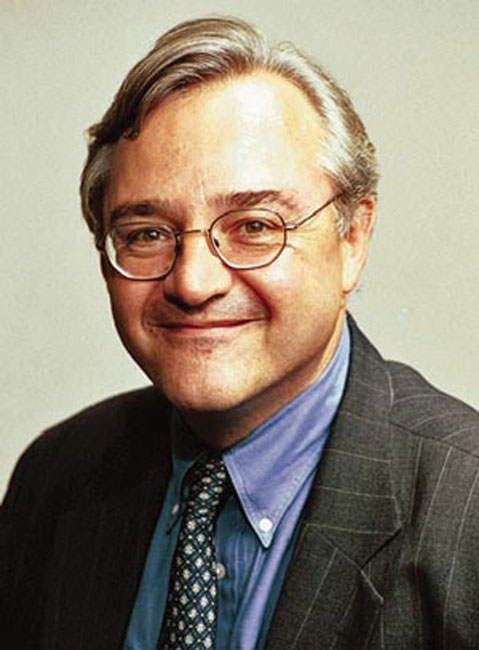E.J. Dionne on the Death of Compromise
Capps Center to Present Top D.C. Pundit
“The first word of the Constitution is ‘We,’ not ‘I,’” notes political columnist and author E.J. Dionne.
For Dionne, perhaps the most insightful, scholarly, and civil member of the oft-obnoxious and offensive species known as the Beltway pundit, a misreading of the pronoun with which the nation’s founding document begins is a major source of the toxicity now afflicting American politics.

In his just-published book, Our Divided Political Heart, Dionne argues that a time-honored and necessary equilibrium between two crucial values that underpin our public life — individualism and community — has been lost amid a right-wing rewrite of history:
“Underlying our political impasse is a lost sense of national balance that in turn reflects a loss of historical memory,” he writes. “Americans disagree about who we are because we can’t agree about who we’ve been.”
An artful, brainy, and soft-spoken commentator in an age of braying and benighted cable-network shouters, Dionne will be in Santa Barbara next week for a speech sponsored by UCSB’s (all rise) Walter H. Capps Center for the Study of Ethics, Religion, and Public Life.

A contributor to The Washington Post and NPR, Dionne helped frame the 1992 presidential election with his classic book Why Americans Hate Politics. He introduced the term “false choices” into the political lexicon to describe the bitter and binary partisan conflicts that characterize politics but are of little importance or relevance in the real lives of many Americans; the idea animated the centrist “third way” politics of Bill Clinton, among others.
Twenty years later, Dionne’s latest volume builds on that notion, offering a brisk stroll through the nation’s history of political ideas to analyze the even more intractably polarized politics of 2012. From Hamilton and Jefferson to Clay and Jackson, Lincoln, and both Roosevelts, he traces the development of what he calls the “Long Consensus,” which he defines as a “social contract for shared prosperity.”
The basis of this consensus was the recognition that government and the private economy are not antithetical; in fact, they complemented and strengthened each other through the decades of the American Century when economic mobility increased and the middle class expanded as the two parties, despite philosophical differences, forged compromises based on shared assumptions about the need for both public action and free markets.
“In the hundred years after Theodore Roosevelt assumed the presidency, government grew — but so did individual liberty,” he writes. “The state assumed new roles, but individual opportunities expanded.
“New regulations protected the air and the water, the integrity of food and drugs, the safety of workplaces and consumer products — and American capitalism flourished. Workers organized into unions that advanced the interests of those who depended on their labor, not capital for their livelihoods. In doing so, labor organizations strengthened a more social form of capitalism based on widespread property ownership and upward mobility.”
In an interview, Dionne said that today’s Tea Party Republicans celebrate individualism as the singular American political value, disparaging and dismissing any role for government as destructive of capitalism and liberty. With this mindset, politics becomes a winner-take-all proposition, and compromise becomes a dirty word, he said, noting the departure and purging of moderates from the GOP amid the rise of ideological dogma on the right.
“The right has become much more radical than it was,” he said. “The Tea Party wants to invent an American story based solely on individualism, in which community has played no role. So compromise becomes ‘almost treasonous,’ as [Texas Governor] Rick Perry put it in the primaries.”
Dionne will be speaking and signing books at the Capps Center event next Wednesday (June 20) at 8 p.m. at the Lobero. Admission is free.
P.S.: By coincidence, the Pew Research Center has just released a major new survey that backs Dionne’s argument, concluding that Americans are more polarized along partisan lines than at any point in the past quarter-century:
“Republicans and Democrats are furthest apart in their opinions about the social safety net. There are partisan differences of 35 points or more in opinions about the government’s responsibility to care for the poor, whether the government should help more needy people if it means adding to the debt, and whether the government should guarantee all citizens enough to eat and a place to sleep.
“On all three measures, the percentage of Republicans asserting a government responsibility to aid the poor has fallen in recent years to 25-year lows.”



